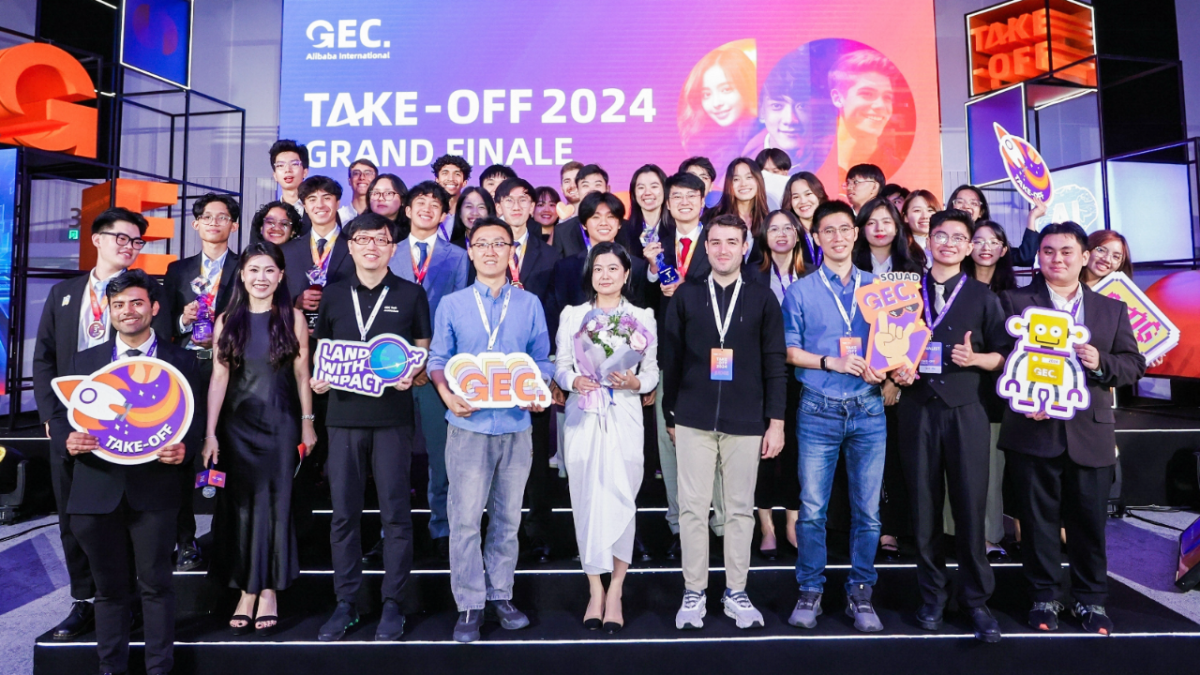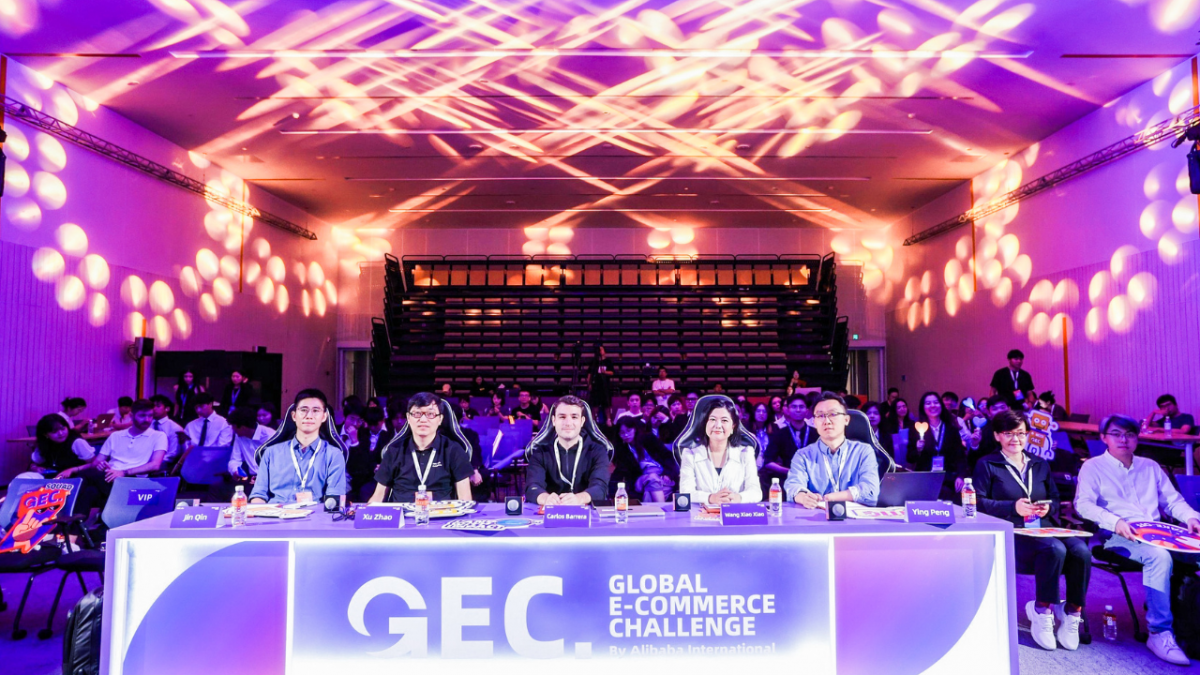
Photo credit: Alibaba Group
Young minds from around the world gathered in southern China this week for a battle of artificial intelligence innovation as Alibaba Group’s annual Global E-Commerce Challenge (GEC) crowned its 2024 winners.
Now in its fourth year, the competition sees teams of university students and recent graduates apply AI to solve common problems faced by e-commerce merchants and consumers.
This year, over 500 teams from Europe, the Americas, and across Asia took part in two rounds of selection, with 11 teams appearing before judges in a grand final in Hangzhou on Wednesday.
They pitched a range of AI-powered solutions to the panel, from regulatory compliance systems to gamified shopping experiences.
“These young innovators are showcasing not just technical prowess but also a deep understanding of the evolving needs of global e-commerce,” said Kaifu Zhang, Vice President and Head of AI Initiatives at Alibaba International.

In addition to addressing pressing industry concerns, GEC entrants participate for a shot at securing work experience at Alibaba International.
Winners and finalists have the opportunity to apply for internships or full-time positions at Alibaba’s cross-border e-commerce wing, which houses global platforms including AliExpress, Lazada, Trendyol and Daraz.
Ready to meet the AI-powered e-commerce tools of tomorrow? Keep reading for Alizila’s top five areas of innovation to watch.
Compliance Comes First
The complexities of cross-border e-commerce can be overwhelming. Up to 75% of items sold online risk breaching product safety regulations and guidelines, according to a 2022 report by global law firm Reed Smith.
To address cross-border e-commerce challenges, Team CrashCourse developed an AI-driven regulatory compliance system called AliAdapt.
This first-place-winning solution provides real-time feedback on product compliance with regional laws, reducing the risk of regulatory infractions and enhancing market entry strategies.
Search Ends Here
Teams like Athena from the National University of Singapore (NUS) and BytesOverflow, a collaboration between NUS and the Singapore Institute of Technology, are leading the charge in AI-enhanced search functionalities.
Their solutions, such as AI-driven visual and voice search tools, are designed to make e-commerce platforms more intuitive and accessible.
By integrating advanced natural language processing and image recognition technologies, these teams aim to deliver a more personalized shopping experience that caters to diverse customer needs and preferences.
A Step for AR, a LEAP for Consumers
The Echelon Group, from America’s Johns Hopkins University, took second place with its innovative augmented reality solution, Lazada Enhanced AR Platform (LEAP).
LEAP allows customers to preview products in their physical environments. Doing so boosts consumer confidence by providing a more tangible understanding of the products and also potentially reduces return rates, which is an ongoing challenge in e-commerce.
Gamification Levels Up
The cohort from Indonesia’s Bandung Institute of Technology, Team Saturdays, introduced a platform allowing users to decorate virtual spaces with digital twins of physical products, achieving seamless integration between the physical and digital worlds.
Pretty and Personalized
Team ByteBoutique from Ateneo de Manila University and Team Dev404 from Nanyang Technological University created applications for personalized skincare recommendations and fashion advice. These AI-powered apps give consumers tailored suggestions based on individual preferences and characteristics.
Personalization is also a valuable ally for gift-givers, as Team Torudovi showed. Its AI-powered features, designed for use on Lazada, help consumers pick out great gifts for friends.
Feeling that innovation buzz? Keep it going by visiting Alizila’s technology section




